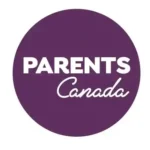Private School
4 min Read
4 tips on paying for private school

September 12, 2019
Private School
4 min Read

September 12, 2019

Our Canadian identity is tied to our socially conscious dedication to levelling the playing field. But when it comes to classrooms across the country, we still fall victim to Hollywood portrayals of private school as a luxury reserved for the upper class, not a potential life-changing investment for every parent to consider. With the plethora of funding options that exist from province to province and nationwide—such as savings and payment plans, tax breaks, scholarships and bursaries—it makes sense to consider your child’s academic possibilites. “Many couples know that they want their children to go to private school before they start a family,” says Brenda Hiscock, a Markham, Ont.-based certified financial planner who works with families who have chosen private school over the public system. “If that is the case, it is a great idea to begin saving funds in a Tax-Free Savings Account right away.” The $10,000 annual limit allows funds to accumulate quickly in a tax- sheltered environment, because growth is not taxed when funds are withdrawn. Hiscock acknowledges not everyone can manage the full amount every year. “But it really works well to make automatic monthly deposits into an account, creating forced savings.”
You can change how much you put aside as your professional life and financial portfolio take shape. “Over time, monthly deposits can be increased. This really gives parents a head start, considering that after five years, a couple could accumulate $100,000 (not taking into consideration returns),” says Hiscock. Make an exhaustive list of your options before factoring in tuition fees.
Taking the focus off the financial burden might seem counterintuitive when it comes to choosing your child’s best academic options, but don’t automatically delete a school from the list you and your child are considering because it seems too expensive. Many private schools offer discounts to parents who enroll more than one child at the same school, often decreasing tuition fees significantly.
“We have two levels of financial support at Branksome Hall,” says Kimberly Carter, executive director of enrolment management at the Toronto girls’ school. “Beginning in grade seven and carrying on until grade 12, students are eligible for merit-based scholarships based on report cards, interviews, essays, presentations, etc. “Most are between $1,000 and $7,500, but we do have full scholarships available, says Carter. “We try to support as many families as possible and we encourage parents to apply.”
Just like with a travel agent, sometimes speaking directly to an insider can lead to savings even the most thorough online searches can’t uncover. Perhaps the school in question has a more flexible payment plan than they make apparent on their website or pamphlet. You don’t know until you ask.
Find out whether there are volunteer opportunities for parents, such as coaching sports teams or overseeing extracurricular activities—this can reduce fees. Be up front about your concerns— you might be pleasantly surprised by how accommodating private schools can be, as well as how many bursaries and financial assistance opportunities exist that aren’t advertised. “About 10 percent of our students have their tuition partially or fully covered,” says Robb Nelson, managing director and owner of PEAC School for Elite Athletes in Toronto. Alumni include National Hockey League first-round draft picks Lawson Crouse and Malcolm Subban, younger sibling to PK and older brother of Vancouver Canuck Jordan Subban, who also attended PEAC. “Ask what is and isn’t possible, never assuming case-by-case payment plans can’t be made at some schools,” says Nelson. “Our school relies on generous donors, alumni contributions and fundraising initiatives to subsidize costs for students whose families can’t afford the annual tuition fees.”
Check whether you’re eligible for tax deductions or credits. “In certain situations, tax write-offs are available,” says Hiscock. She says this applies to religious private schools, which are registered charitable organizations. A student with a mental or physical disability can also qualify families for a tax credit. Hiscock says a doctor’s letter stating a child would benefit from a private school environment for medical reasons is often required.
Originally published in the 2019 Private School Guide.